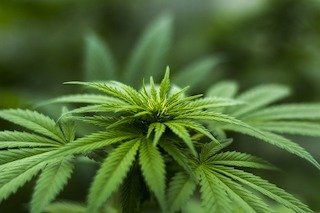This week, the International Cannabis Policy Conference is bringing together an international community of scientists, entrepreneurs, and policy decision makers to review and explore the current laws and regulations, and discuss future international legislation surrounding Cannabis.
 )
)
Held in Vienna on the 7th-9th December, the conference is set to tackle some big issues. Since the global banning of Cannabis spp. brought about in 1961 by the United Nations Single Convention on Narcotic Drugs, the multiple uses of not only medicinal Cannabis, but hemp and its numerous applications across a wide variety of industries, has been buried and outlawed.

A resurgence of support for Cannabis has begun, and the Vienna conference will showcase the potential for Cannabis to meet multiple goals of the United Nations 2030 Agenda for Sustainable Development. By briefing policy makers, countries, the UN and World Health Organisation on the potential for Cannabis to meet social, environmental, economic, and human rights challenges, the case for descheduling Cannabis at the international level will be made.
This is crucial timing.
From Wednesday until Friday of this week, the UN Commission of Narcotic Drugs (CND) will receive the final scheduling recommendations on both Cannabidiol, and also Cannabis in all its forms, from the WHO. Once recieved, those recommendations will be presented to the 187 Member States at the United Nations Office on Drugs and Crime (UNODC), also headquartered in Vienna.
In four short months...
In March 2019, the UN meets to vote on new Cannabis treaty scheduling plus the 2019-2029 plan of action on will be voted on by the countries, leading to decisions and opportunites for new market developments and innovations. The vast array of uses for Cannabis, not only in the medical arena, but in areas such as fuel, food, construction, clothing, mechanics, bioresoration and filtration, and agriculture, is uniqely placed to fulfil multiple global targets set by the UN in their United Nations 2030 Agenda for Sustainable Development.
This weeks International Cannabis Policy Conference is the last chance for stakeholders: be they researchers, students, NGO's, public officials or any other interested party, to have a say into the crucial issue of the scheduling of Cannabis spp. at an international level. A schedule which largely hasn't changed since 1961. With legislation rapidly changing across the globe, starting with Uruguay and leading to reforms in medical use in a growing number of countries, arguably the biggest step forward was Canada's decision to legalise Cannabis in October 2018, the first member of both the G7 and the G20 countries to do so.
Since Anslinger hoodwinked the global community and set us all on a path of destruction intersecting a legion of fields, the time has come for the international community to issue a massive, and long overdue correction.
I write about global issues, medicine, biochemistry, pharmacognosy, nature, herbal medicine, growing plants, and mushrooms. If you're into these topics be sure to follow me here. Thanks for visiting.
Sources:
http://faaat.net/do-tank-en/launch-conference-2018/
https://news.vice.com/en_us/article/7xadnx/weed-and-the-un-why-international-drug-laws-wont-stop-legalization
https://www.visualcapitalist.com/?s=cannabis
http://amcsignpost.net/where-and-what-are-we-up-to-a-review-of-mc-in-australia/
https://beyondthc.com
http://www.cannabis-med.org/
https://www.unodc.org

Downvoting a post can decrease pending rewards and make it less visible. Common reasons:
Submit